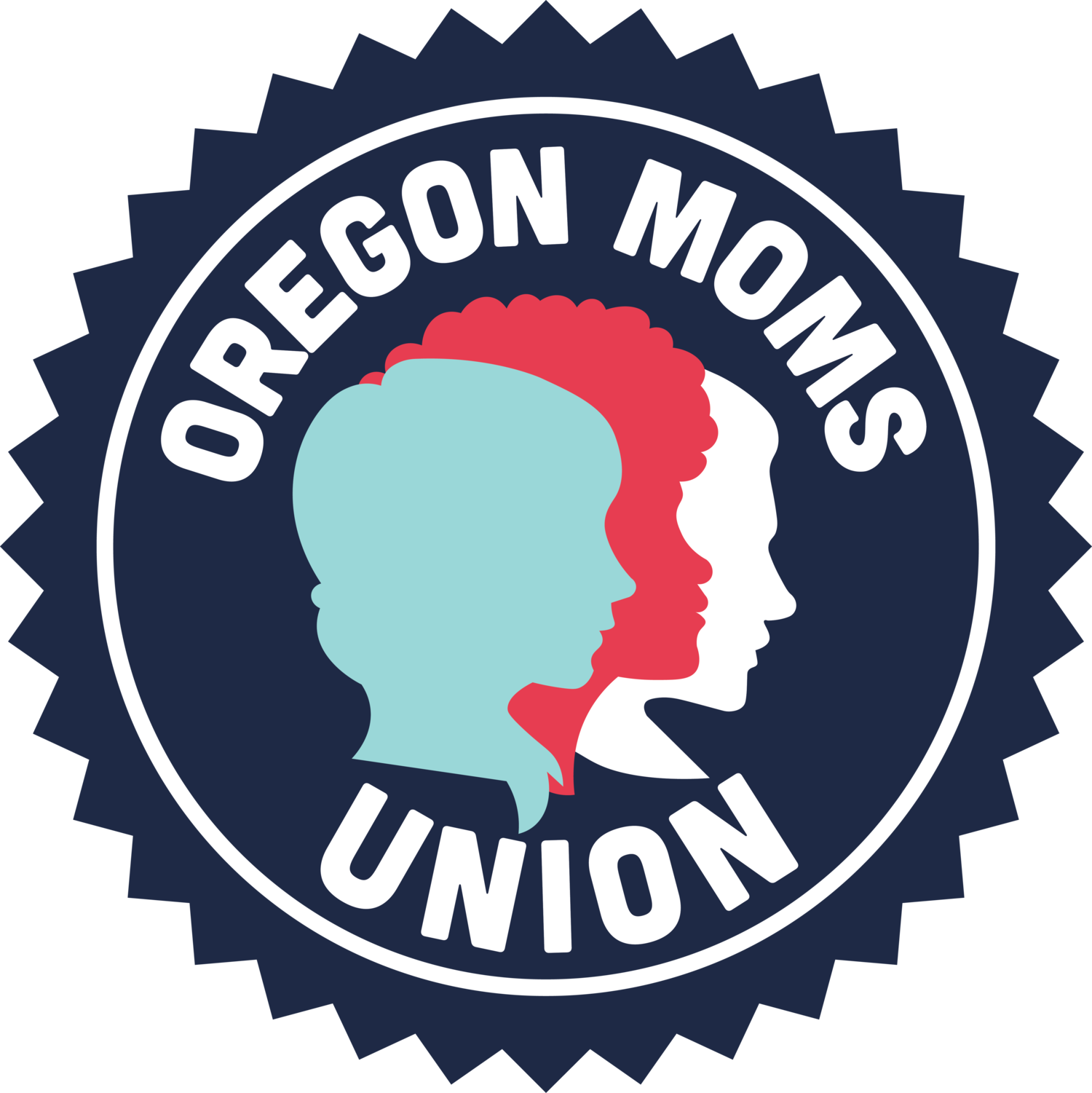
Teacher Union Opt Out Toolkit
As parents, many of us are unaware of how the government teachers unions can affect our children’s education. Read on for FAQs and more information about how you can help teachers opt out.
Reminder: As some of you know by now, on June 27, 2018, the Supreme Court ruled in favor of Illinois government employee Mark Janus in Janus v. AFSCME. The decision means that NO public-school teacher or any other government employee in the U.S. has to pay money to a union as a condition of employment. Since this decision has generated many questions, here are some answers.
FAQ’s About Leaving OEA/Union
-
Some teachers think the union dues are unreasonable, especially when compared to the dues of other unions. Some resent the union’s role in enabling and defending underperforming employees. Many find distasteful the union’s political activity and use of dues to advance partisan causes, candidates, ideology, and age-inappropriate Sex-ed curricula. Some have political disagreements with union positions, and some have religious objections to union stances.
-
Public employee / teachers’ unions are private, tax free organizations with minimal obligations to disclose financial information to members or society. However, we know that teachers across America pay exorbitantly high union dues, with an astonishing amount going to high executive compensation (ex. NEA’s president’s total compensation in 2020 was over $416,000.)
A large portion of dues, however, fund political activities that don’t clearly benefit classroom-based educators. In Oregon, for example, OEA collects over $25 million in dues each year and spends it on its favored causes, candidates and projects, and all state and national teachers’ unions do the same. Dues fund partisan social issues, highly questionable sex ed laws and policies, advocacy groups, ballot initiatives, legislation, and political PACs that often have little or nothing to do with education. Even though teachers are politically diverse like all Americans, 99% of all political dues support progressive candidates and issues. This level of overreach, and the dismissal of the rights of all union members, ultimately influenced the recent Supreme Court decision in Janus v. AFSCME.
-
Yes. The state and national unions have been empowered by laws to be the exclusive representative to everyone in their workplace. Due to union insistence, employees are not allowed to negotiate their own compensation or handle their own grievances with their employer, nor can they hire another person, union, or entity to represent them.
In exchange for this unusual benefit, the state and national unions are legally obligated to represent all employees in the workplace, including those who choose not to join the union as members. The unions themselves fought for this legal right and privilege but then complain when they are required to represent everyone. The collective bargaining agreement was negotiated by their local association and their employer and will continue to set the terms and conditions of your employment. The union has the obligation to represent teachers in grievances, contract enforcement, discipline assistance or other proceedings governed by the collective bargaining agreement.
-
No. All provisions of the collective bargaining agreement between the local association and their employer will continue to govern their employment. The state and national unions have no authority over their contract. Their wages, health benefits, and anything else governed by the collective bargaining agreement will remain unchanged even after they resign from the union.
-
Teachers will not be allowed to hold union office, nor will they have any voting rights. They will lose the union's liability insurance. Should they ever get sued and need legal representation, the union will not pay for it. However, many teachers are discovering that the unions may not defend them when they need it and could actually undermine their cases. Teachers can obtain far superior liability coverage from outside groups for around $200 a year. (See FAQ 8 for liability insurance options.)
-
No. Because state and national unions are the exclusive representatives of all teacher union members, and they spend most of teacher monies on a political agenda, the real truth is: it’s the state and national unions that are free riding. The union will never voluntarily give up this astonishing perk (exclusive representation) because it allows them to collect dues from over 4.6 million teachers and school employees in NEA and AFT, amounting to hundreds of millions of dollars every year, tax free.
The state and national unions could choose to NOT be the exclusive representative of ALL teachers, but this monopoly is so valuable that they willingly chose to represent all teachers, whether or not they pay dues to the union. Yet NEA and AFT cynically labels teachers who want to resign as “free riders.”
-
Union members have the right to resign their union membership. Go to www.OptOutToday.com for the forms to resign. Complete a personalized letter emailed to them. Send this letter to the address provided or directly to your union, by certified mail.
If either their resignation or dues deduction revocation is not honored within a few weeks or they receive a negative response to the demand letter, they can call the union first to find out why. If this is not resolved, they can contact Freedom Foundation for assistance.
-
Now that they are not paying approximately $1,100 per year in union dues, they may want to purchase a policy for liability and legal coverage for approximately $200 per year. Two excellent organizations have been providing this coverage for years. Association of American Educators and Christian Educators Association International.
-
Yes and No. Many teachers would be happy to support their local association, but they are uncomfortable supporting state and national union affiliates. Sadly, the state and national unions require union members to be members at all levels—local, state, and national, but there are ways to break free of state and national union control. (See FAQ 10)
-
Keeping their local association only is a process called decertification or disaffiliation. In a nutshell, decertification / disaffiliation eliminates the state and national unions from their association, allows the local association to bargain collectively with the school district, and ends the payment of high dues and support of union politics.
To keep their local association, usually 30% of the teachers in their school district sign a petition to decertify the entire web of union control—their national, state, and local union. Then a district-wide vote of 51% is required to vote out the state and national affiliates and vote in their new independent, unaffiliated local association.
Once their district is decertified, teachers can simply reorganize as an independent local association. With membership dues from each teacher the new local association can hire legal counsel, hire a lobbyist if necessary, purchase comprehensive group liability insurance, collectively bargain with the school district and make any other arrangements the local members feel are necessary.
Should teachers choose to undertake decertification in their school district, connect with someone at the Freedom Foundation for help.
-
No. Union leaders may try to make teachers feel isolated, as though they are the only one resigning from the union. This is completely untrue. Thousands of teachers across Oregon have grown discouraged with union policies and abuses and are choosing to exercise their First Amendment rights to resign from organizations that does not reflect their values. They are definitely not alone.
Opt Out of the Union Today
Teachers can visit www.OptOutToday.com for the forms to resign. They can complete a personalized letter that can be emailed to them. They can send this letter to the address provided or directly to the union, by certified mail.
Liability Insurance
-
Largest national, non-union, professional educator organization; dues are $196/year. This includes $2 million professional liability insurance policy which covers legal protection, employment rights coverage, access to supplementary insurance policies at discounted rates—health, auto, term life insurance, etc. www.aaeteachers.org
-
A professional association open to Christians who are committed to Judeo-Christian values in public, private, and Christian schools. For $239 per year, CEAI provides benefits such as a $2 million liability policy, a job action protection benefit with attorneys, and unlimited educational and legal consultation. www.christianeducators.org
Two excellent organizations have been providing this coverage for years.
Adopt A Teacher
Many teachers feel that they have no other options but to remain a member of the government teachers unions. Parents can ‘adopt a teacher’ to help them understand their options should they decide to leave the unions. Learn more about adopting a teacher and how you can help.
Watch the webinar:
How government teachers unions are affecting your child’s education
Presented by Oregon Moms Union and Freedom Foundation

